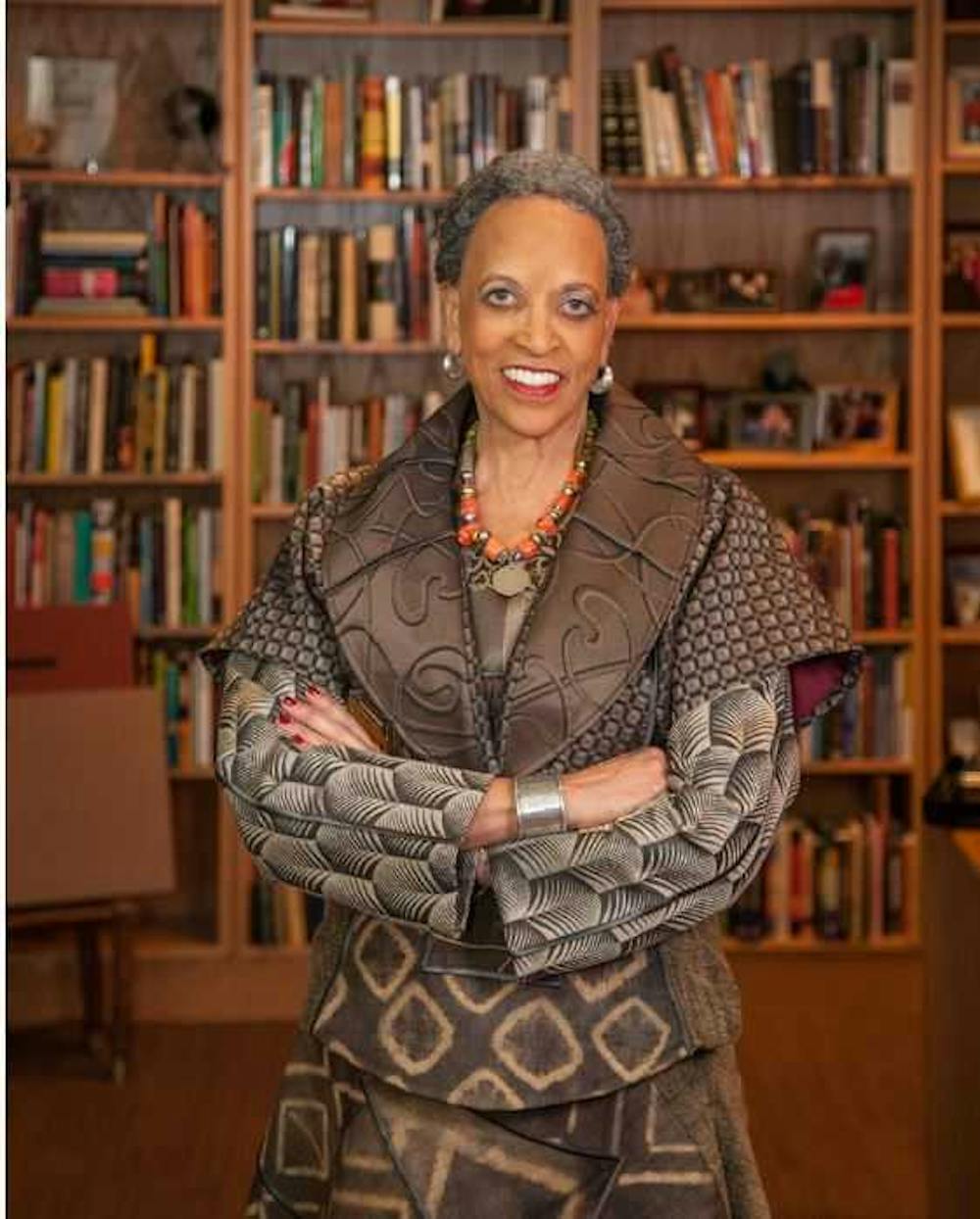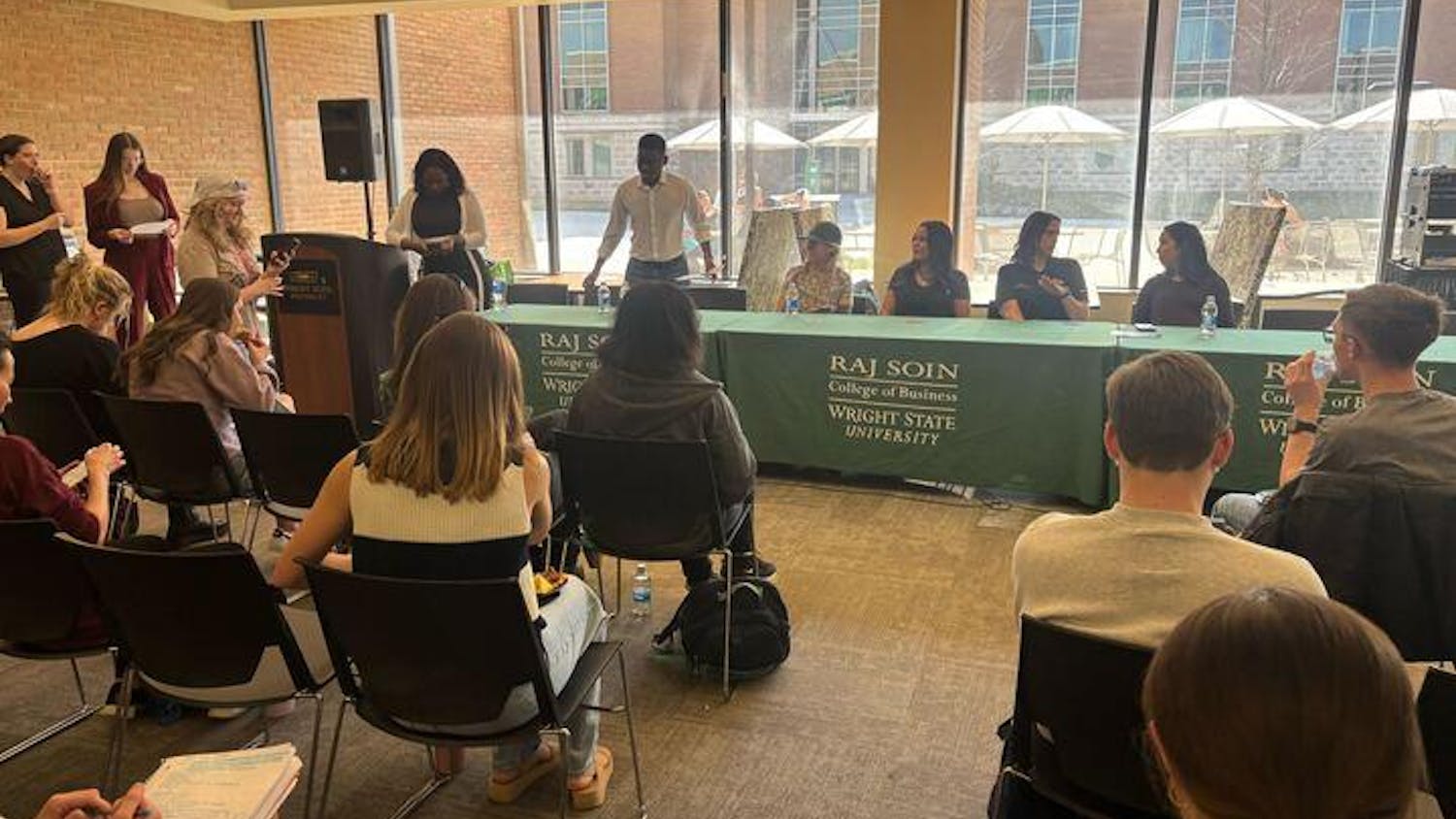Johnnetta B. Cole | The University of Toledo
On Thursday, Sept. 14, anthropologist Dr. Johnnetta Cole spoke at a symposium about Democracy, Diversity and Liberal Arts in the Creative Arts Center.
The environment
Strange beeping emitted from somewhere. Students and staff gathered in the dimly lit Recital Hall to hear the wisdom of an esteemed and decorated anthropologist. Freshmen who have probably never been in this room before remarked on how cold it was.
Everyone found seating and the distinguished guest walked down to the front. She did not sit on stage in the chair undoubtedly prepared for her; instead, she leaned against the stage and addressed her audience from the floor.
The talk
The first part of Cole’s talk was a Question & Answer session for students of the French section of the Liberal Arts course with Dr. Kirsten Halling. Cole later gave a less conversational lecture.

Cole explained the beeping sounds from her breathing apparatus, the cost of a foolish mistake made when she was younger, she explained. She confessed that she smoked heavily and recently joined the largest marginalized community in the world—the differently-abled community—having been diagnosed with Chronic Obstructive Pulmonary Disease.
Cole pointed out that this is the fourth marginalized community of which she is a member. She was born of the female sex and with black skin and grew into her status as a member of the elderly community after 86 years of hard work.
“Because you are a member of a marginalized community does not mean you are immune from treating people without the dignity they deserve,” Cole reminded students.
Decency is not inherited nor determined by single acts. It is a habit.
Summarizing her time in Liberia, Cole listed the four kinds of anthropological studies: cultural, biological and linguistic, and when she could not place the last one (archaeological), she said she had an “intellectual interlude,” not a “senior moment.”
She was very emphatic about her use of words, urging the audience to use “marginalized community” in the place of “minority.” Later, she used the phrase “daughter-in-love” instead of “daughter-in-law.”
Cole’s advice
Cole recounted to the audience the vast richness available to one who explores the world and lives among different cultures.
“If you have an interest at all in joining the peace corps or teaching in another country, I gotta urge you to do it. To learn enough to teach bilingually is priceless,” Cole said.
The intonation of her delivery was very engaging. She came across as an exceptionally real and grounded human being with much insight and a gentle strength of character.
One student asked Cole how she has kept her center facing societal pressures. Her reply was that one must remain in the struggle.
“You’ve got a responsibility to find a way not to give up,” Cole said.
Cole believes that the purpose of one’s life is to find one’s passions. Passion, which comes from the Latin root passio, meaning “suffering, enduring,” is not effortless.
“Sometimes it requires things like going to jail or reading from banned books,” Cole said, stressing the importance of non-violent forms of protesting and voting.
Cole told the audience to look for common ground across lines of differences and to be willing to ask for help.
“If you’ve got a toothache, find a dentist. If you’ve got a heartache, well, if something is wrong with the valves, find a cardiologist. If your soul is hurting, find a therapist,” Cole said.
Cole said that kinship is not about being closely related to someone but about a shared vision, hope or values. Having been born black in segregated America, she was grateful to the teachers that “grew her up” by instilling the counter-narrative to the ignorance of racism.
“Education is for yourself and for others. The arts are a gift from one soul to another. They help us understand ourselves and each other,” Cole said. “We who believe in democracy, diversity and the liberal arts must do a lot of work. Be a nuisance. We dare not live without them.”
Her moving speech garnered a standing ovation.
It is going to take every one of us that understands the importance of our humanity to defend it. Cole demonstrated an abundantly bright variety of hope, the sort that well understands the importance of gratitude.
She left the audience with a proverb: "If you think you’re too small to make a difference, you’ve never spent the night in a closed room with a mosquito.”












